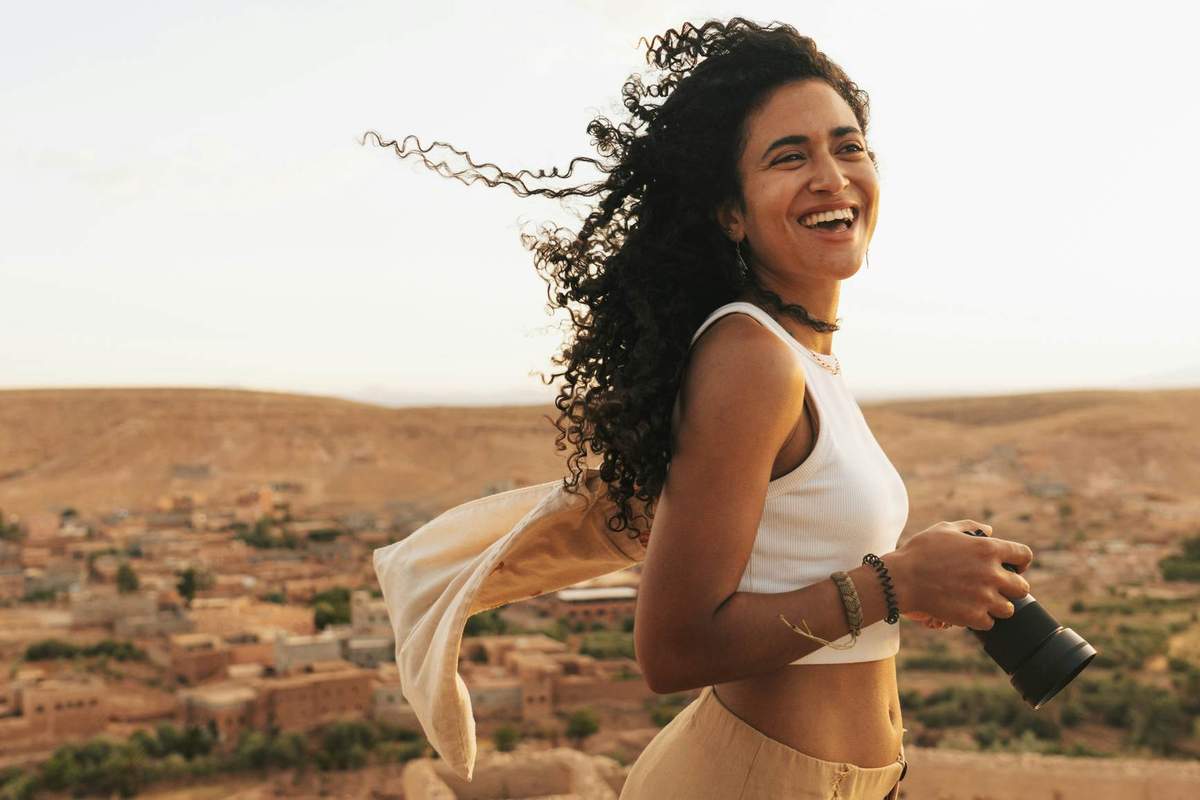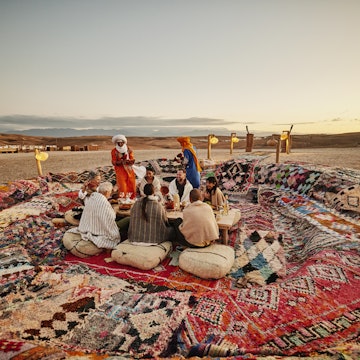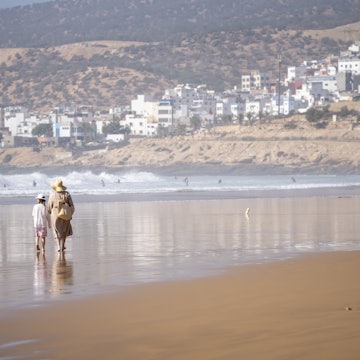
Fashionistas are flocking to Marrakesh's medina, and you can shop there, too
Jan 20, 2020 • 5 min read
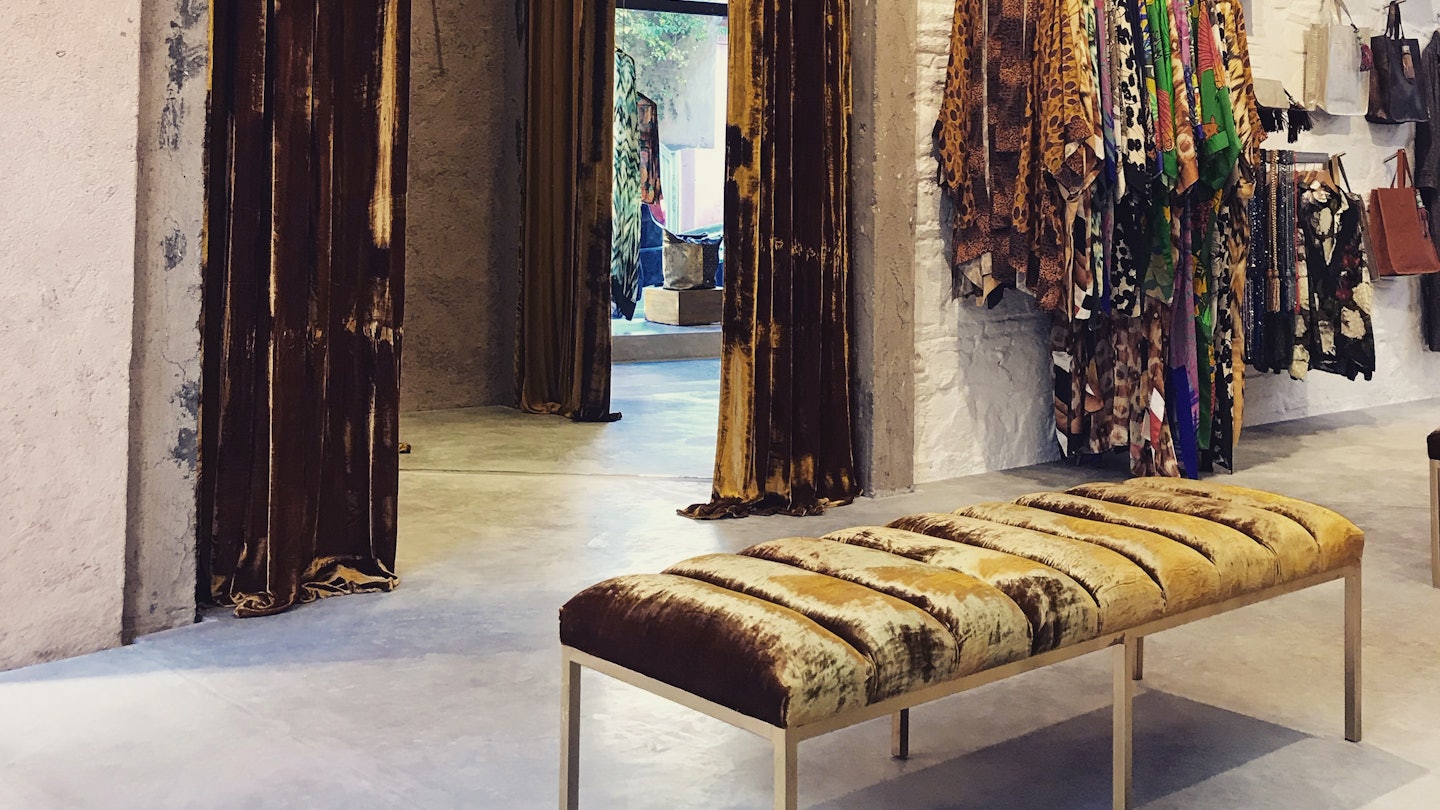
Norya ayroN, one of Marrakesh's growing number of sought-after fashion boutiques © Norya ayroN
Marrakesh is like an excited child that takes you by the hand and wants you to come and play. Tugging at your sleeves, the city pulls you into souks and drags you down side streets to explore all of the irresistible colours, perfumes and flavours.

Marrakesh is filled with colour, and its fashion is no exception. The ochre alleyways are punctuated by silhouettes draped in vibrant textiles and flowing robes, or djellabas. The souks are an overflowing treasure trove for shoppers, the winding streets packed with clothes, accessories and exotic adornments.
Here in Morocco, designers are bridging the world of traditional clothing with expressive designs and contemporary fashion. The modest fashion market is booming, as options and styles are rapidly expanding. Conservative fashion is not just about being covered. There are many reasons people choose to adopt modest dress: choice, bodily autonomy, self-expression, or just personal taste. Regardless of religion, modest fashion is being embraced around the world, and it’s easy to see why. The flowing cuts are effortlessly chic yet comfortable, and the designs sport an exciting range of eye-catching prints and colours.
Algerian–French designer Norya owns a small boutique set beneath the leafy canopy of a trendy cafe. The shop may be little, but Norya’s designs have draped some of the world's biggest celebrities (Kate Moss, Erykah Badu and Sharon Stone, to name a few). Norya sits on the sun-drenched patio of her boutique, wearing one of her iconic silk kaftans in a splendid dandelion yellow.
“It was an accident,” Norya reveals, on her rise to prominence as a designer.
The creation of her brand, Norya ayronN, was a last-minute decision, and her first collection consisted of just a few pieces. It was a hit, and her line of kaftans and abayas (long dresses) became highly sought-after, both locally and abroad.
Read more: How to beat the queues and crowds at YSL's Jardin Majorelle in Marrakesh
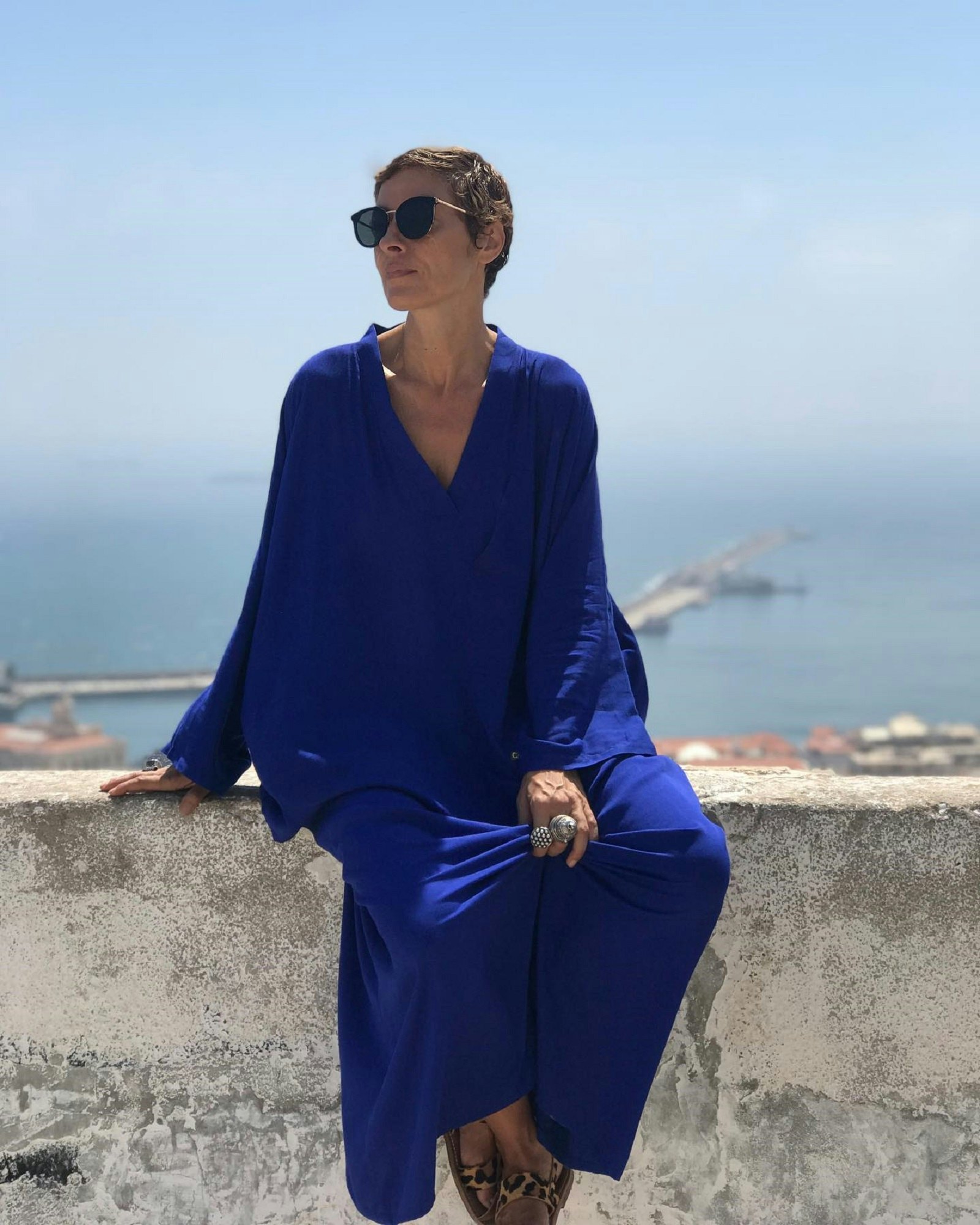
“The idea was to create a mix of my cultures. I am from North Africa, but I grew up in Europe, so I mix between the two. The North was colonised for years. It's already a mix, so it’s very interesting,” Norya explains.
“The colours are what inspire me the most about Africa. Women in Morocco love fabrics, they love colours. They don’t buy everything in shops, like in Europe. They are creative, and they create their own dresses. Every time I go to a shop to buy fabric, it is full of women buying fabric for themselves.”
This creative and vibrant approach to fashion is certainly visible in her brand's aesthetic. The pieces, many of them one-offs, feature vibrant hues, elegant silhouettes and bold patterns printed on luxurious silk fabrics. Adding a sleek bohemian twist to traditional North African garb, it’s easy to see why Norya’s designs have become highly coveted overseas.
Designers like Norya are expanding the market for traditional clothing, and breaking the stereotype that conservative fashion is limiting.
“I don’t see it as a conservative thing at all. I love long dresses; it’s a beautiful coincidence. Long dresses are so elegant. I think a long dress can be 100% more feminine and sexy than a short one.”
Norya’s designs have proven so popular, that she has started a line of menswear.
“Men wear dresses too! I sell dresses to men from everywhere.”
Regardless of culture or gender, it seems that the colourful fashion of North Africa has something for everybody.
Read more: Hidden Marrakesh: a guide to the city's best-kept secrets

Tap into traditional Moroccan fashion and fusion
Norya ayroN
You can visit Norya’s boutique, Norya ayroN, inside Le Jardin cafe in the Medina, or at her second boutique in Marrakesh's downtown area of Guilez (17 Rue Tarik Ben Ziad).
Joykech Bazar
This small boutique in the north area of the Medina is a paisley dream reminiscent of the psychedelic '60s. Joykech Bazar features a fantastic collection of upcycled vintage kaftans in a splendid array of colours and prints. The store also has a contemporary collection that fuses traditional cuts with funky fabrics and bold prints, creating the ultimate boho-chic aesthetic.
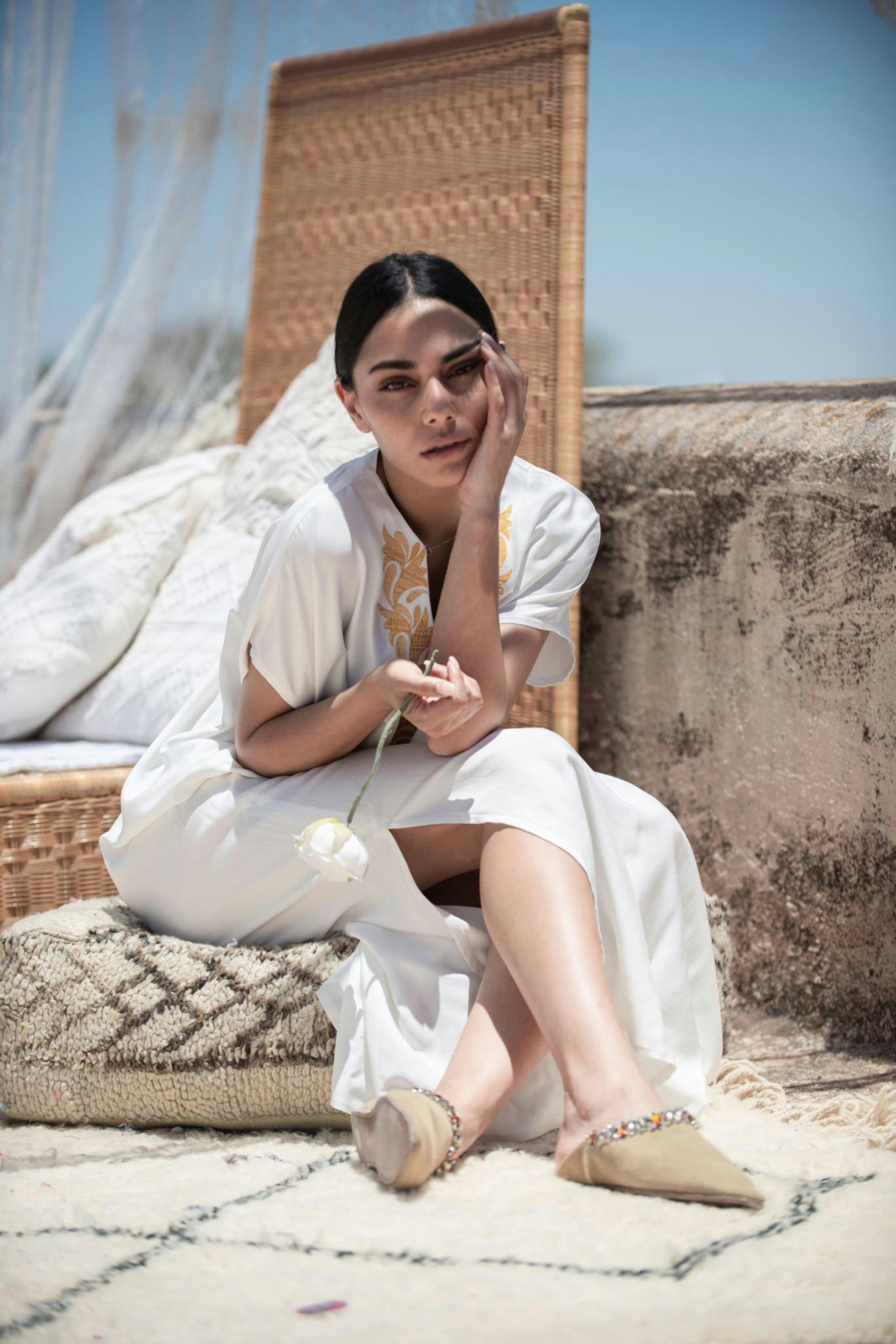
Kaftan Queen
Kaftan Queen has traditional Moroccan kaftans, capes and tunics with a sleek and modern twist. The breezy and comfortable designs offer a stylish respite from the Moroccan heat. Here, you’ll find effortlessly elegant cuts in sumptuous silks and flowing fabrics. The designs are manufactured locally, combining locally sourced fabric and traditional Moroccan dressmaking techniques.

Art Ouarzazate
Samad and Malek are the designers behind Art Ouarzazate, who look to their travels overseas for inspiration. The eclectic designs incorporate traditional Moroccan fashion, mixed with styles and textiles from all over the world. Samad names Mongolia, Italy and India as some of his influences. The boutique boasts a funky '70s vintage feel – snakeskin flares, sequin dresses and fur-lined velvet capes can be found on the racks.
Bijouterie Tissir
Bijouterie Tissir is a jewellery boutique that sells antique, vintage, and contemporary Berber pieces. The shop boasts a dazzling selection of hand-worked silver, featuring bold geometry and embellished with brightly coloured stones and shells. These eye-catching adornments are the perfect statement pieces to add an authentic North African touch to any outfit.

Exploring the souks
Traditional Moroccan clothing, such as djellabas, abayas, and kaftans can be found in the souks all over the medina. Shoppers will be spoiled for choice in the labyrinth of streets, which is overflowing with wares. Head to the dyers' souk to discover the source of the brightly coloured textiles. Reels of wool and silk hang overhead, a technicolor array of infusions from poppy, saffron to indigo. Here you can pick up a hand-dyed scarf or shawl coloured with exotic pigments.
Read more: A guide to haggling in Marrakesh

The leather production in Morocco is world-renowned. There are plenty of shops touting leather goods in the medina. You can find anything from a classic pair of sheepskin Moroccan slippers (babouches) to goat-hide handbags and leather jackets in every colour. The tanneries offer a quick glimpse into the curing process and there is a cluster of leather suppliers in the vicinity. And if you decide to purchase something from the souks, be prepared to haggle!





